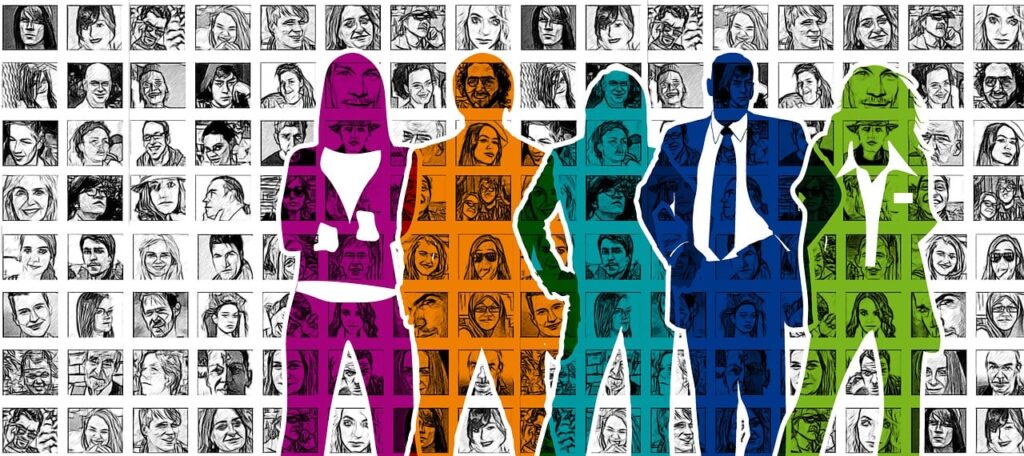The Importance of Promoting Inclusivity at Events

Inclusivity at events is crucial for creating a welcoming and respectful environment where all attendees feel valued and able to fully participate. It is a multi-faceted concept that requires a comprehensive approach, considering the various dimensions of diversity and actively working to create environments that embrace and celebrate differences. In this article we have highlighted the benefits of inclusivity at events.
Diverse Perspectives:
Inclusivity involves embracing and celebrating diversity in all its forms, including but not limited to race, ethnicity, gender, sexual orientation, age, ability, religion, socioeconomic status, and cultural background
- Cultural Inclusivity:
- This perspective emphasises the recognition and appreciation of diverse cultural backgrounds. It involves creating spaces and practices that respect and celebrate the customs, traditions, and values of different cultural groups.
- Gender Inclusivity:
- Gender inclusivity focuses on creating an environment that acknowledges and respects individuals of all gender identities. This perspective seeks to break down traditional gender norms and eliminate discrimination based on gender.
- Accessibility and Disability Inclusivity:
- This perspective centres on making physical and digital spaces, information, and services accessible to individuals with disabilities. It involves removing barriers and ensuring equal opportunities for participation.
- Linguistic Inclusivity:
- Recognizing and respecting diverse languages and communication styles is crucial for linguistic inclusivity. This perspective promotes the use of inclusive language and facilitates communication across linguistic differences.
- Generational Inclusivity:
- Acknowledging and valuing the contributions of individuals from different age groups is the focus of generational inclusivity. This perspective promotes intergenerational understanding and collaboration.
- Socioeconomic Inclusivity:
- Socioeconomic inclusivity addresses disparities related to income and social class. It involves creating opportunities for individuals from all economic backgrounds and ensuring fair access to resources.
- Educational Inclusivity:
- This perspective emphasises creating inclusive learning environments that accommodate diverse learning styles and abilities. It seeks to provide equal educational opportunities for everyone, regardless of background or ability.
- Religious and Spiritual Inclusivity:
- Recognizing and respecting diverse religious and spiritual beliefs is central to this perspective. It involves fostering an environment where individuals of different faiths feel accepted and included.
- Sexual Orientation Inclusivity:
- This perspective promotes an inclusive environment for individuals of all sexual orientations. It aims to eliminate discrimination based on sexual orientation and create spaces where everyone feels comfortable being themselves.
- Intersectionality:
- Intersectionality is a perspective that acknowledges the interconnected nature of social identities and experiences. It emphasises that individuals may face unique challenges and forms of discrimination based on the intersection of multiple aspects of their identity.

Enhanced Engagement:
When attendees feel included, they are more likely to engage actively in the event, contributing their insights and making the experience more dynamic and interactive. It creates a sense of belonging among diverse individuals and not only embraces diversity but also ensure that everyone feels valued and heard. This approach goes beyond passive acknowledgment of differences and strives to actively involve individuals from various backgrounds in decision-making processes, discussions, and community activities. Enhanced engagement in inclusivity promotes open dialogue, mutual understanding, and a shared commitment to creating a culture where everyone’s perspectives are considered and respected. It recognises that true inclusivity requires the active involvement of all members of a community or organisation to collectively build a more welcoming and equitable space.
Increased Participation:
Inclusivity promotes equal opportunities for participation, ensuring that individuals of all abilities, identities, and backgrounds can take part in event activities without facing barriers. Increased participation in event inclusivity involves deliberately taking steps to encourage and welcome a diverse range of individuals to actively engage in various events. This approach aims to go beyond mere attendance and emphasises creating an environment where people from different backgrounds feel comfortable and empowered to contribute.
Positive Reputation:
Hosting inclusive events contributes to a positive reputation for the organisers. It signals a commitment to fairness and equality, attracting a broader and more diverse audience.

Fostering Innovation:
A diverse and inclusive environment stimulates creativity and innovation. Attendees from different backgrounds bring unique perspectives, fostering the generation of new ideas and solutions.
Sense of Belonging:
Inclusivity creates a sense of belonging for attendees, making them feel respected and accepted. This emotional connection enhances the overall experience and encourages return attendance.
Legal and Ethical Considerations:
In many regions, there are legal requirements to ensure events are accessible and inclusive. Adhering to these regulations is not only a legal obligation but also an ethical responsibility.
Global Reach:
Inclusive events can appeal to a global audience by acknowledging and celebrating cultural diversity. This inclusivity helps organisers reach a broader and more international participant base.
Minimising Exclusionary Practices:
By actively promoting inclusivity, event organisers can minimise unintentional exclusionary practices and ensure that their events are accessible to individuals with diverse needs and preferences. Use inclusive language in event promotions and materials. Avoid assumptions about participants’ backgrounds and preferences. Represent diversity in promotional imagery to signal an inclusive atmosphere.

Positive Social Impact:
Inclusivity at events generates a positive social impact by fostering diversity, representation, and community building. It promotes cross-cultural learning, challenges biases, and empowers marginalised groups, leading to a more informed and tolerant society. Inclusive events contribute to positive workplace cultures, inspire social awareness and advocacy, and can be catalysts for policy and systemic change. Celebrating diversity at events encourages a positive narrative, while exposure to international perspectives cultivates a global understanding. Overall, inclusivity at events has the potential to drive positive social change by creating spaces that actively embrace and amplify diverse voices and experiences.
Prioritising inclusivity at events is not just a moral imperative; it also has practical benefits. It leads to more engaging and innovative experiences, broader audience appeal, and a positive impact on the event hosts.
Related Posts

A Corporate Christmas Party with a Difference
Do you dread the company’s Christmas party invitation arriving on your desk? Tired of soggy sausage rolls, lukewarm turkey, and limp vegetables, coupled with making small talk over a glass…

Electric Flamingo Christmas Party
In the dark days of winter, London becomes a canvas of sparkling lights, festive decorations, and joyous celebrations. Among the myriad of events, the Electric Flamingo Christmas Party at The…

Le Sorelle Barge in London
Discover an unparalleled blend of historical charm, luxury, and modern comfort aboard Le Sorelle, an extraordinary 1950s barge conversion nestled in the heart of Canary Wharf. Crafted with reclaimed wood…

Finding the Perfect Gallery Venue in London
Finding the perfect gallery venue for an event offers an inspiring environment that can greatly enhance the creative experience. These spaces are specifically designed to showcase artistic work, providing optimal…
